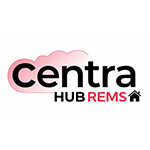Description

4QT Real Estate ERP

dotloop
Comprehensive Overview: 4QT Real Estate ERP vs dotloop
Below is a comprehensive overview of 4QT Real Estate ERP, dotloop, and Spark, focusing on their primary functions, target markets, market share, and key differentiators.
4QT Real Estate ERP
a) Primary Functions and Target Markets
- Primary Functions:
- 4QT Real Estate ERP is designed to provide an integrated platform for real estate companies to streamline operations, manage properties, handle financials, and oversee customer relationships (CRM). Key functions often include property management, leasing, accounting, maintenance, and analytics.
- Target Markets:
- It primarily targets mid-sized to large real estate firms, particularly those engaged in property management and development. It may also appeal to companies looking for a comprehensive enterprise-level solution to manage multiple aspects of their operations.
b) Market Share and User Base
- The market share for 4QT Real Estate ERP is generally smaller compared to more established players like Yardi or AppFolio. The user base consists mainly of property management companies, developers, and real estate investors who require robust enterprise-level functionalities.
c) Key Differentiating Factors
- Comprehensive Integration: 4QT offers seamless integration of various business functions within one platform, which can be highly beneficial for complex organizations.
- Customization: It provides a high level of customization to cater to specific real estate business processes and needs.
- Scalability: The solution is designed to scale with the growth of a real estate business, accommodating increases in operations and data.
dotloop
a) Primary Functions and Target Markets
- Primary Functions:
- dotloop is primarily a real estate transaction management platform, focusing on helping real estate professionals complete transactions faster. It provides features such as e-signatures, document storage, transaction workflows, and compliance management.
- Target Markets:
- It targets real estate agents, brokers, and teams, particularly within residential real estate, who need streamlined transaction management and simplified document processing.
b) Market Share and User Base
- dotloop has a significant presence in North America, especially in the U.S. residential real estate market. As part of Zillow Group, it enjoys high visibility and a broad user base among real estate professionals.
c) Key Differentiating Factors
- User Experience: Known for its intuitive interface and ease of use, which is attractive to real estate professionals.
- Integration with Zillow: dotloop's integration with Zillow provides additional benefits for agents and brokers in terms of visibility and lead management.
- Collaboration: Its robust features for collaboration between agents, clients, and brokers set it apart in transaction management.
Spark
a) Primary Functions and Target Markets
- Primary Functions:
- Spark is a real estate sales and marketing CRM specifically designed for new development projects. It offers functionalities such as inventory management, client relationship management, contract generation, and analytics.
- Target Markets:
- Spark targets real estate developers, sales and marketing teams, particularly those involved in pre-construction and new development projects.
b) Market Share and User Base
- Spark has a niche market predominantly in North America, focusing on real estate developers and marketers handling new developments. Its user base includes developers, marketing agencies, and real estate sales teams.
c) Key Differentiating Factors
- Focus on New Developments: Spark specializes in optimizing the sales and marketing process specifically for new development projects, providing tools tailored to this niche.
- Visual Tools: Offers comprehensive visual tools for presenting and managing project inventories which are crucial for pre-sale and marketing strategies.
- Project Lifecycle Management: It uniquely addresses the entire project lifecycle from initial marketing through to contract completion.
Comparative Analysis
- Market Penetration: dotloop likely has the largest market share and user base due to its integration with Zillow and its focus on transaction management, which is a broader market compared to 4QT and Spark.
- Functionality Focus: 4QT provides an extensive ERP solution for property management, dotloop focuses on streamlining real estate transactions, and Spark is tailored for the sales and marketing of new developments.
- Customization and Integration: 4QT stands out with its customizable and integrative capabilities for mid to large enterprises; dotloop excels in user experience and integration with Zillow; Spark distinguishes itself by its focus on project lifecycle and visual sales tools for developers.
These products serve different aspects of the real estate industry, each catering to specific market needs with distinct functionalities and advantages.
Contact Info

Year founded :
Not Available
Not Available
Not Available
Not Available
Not Available

Year founded :
2008
+1 513-257-0550
Not Available
United States
http://www.linkedin.com/company/dotloop
Feature Similarity Breakdown: 4QT Real Estate ERP, dotloop
When comparing software platforms such as 4QT Real Estate ERP, dotloop, and Spark, it's important to take into account their core purposes, user interface design, and any distinguishing features. Here's a breakdown based on these criteria:
a) Core Features in Common
-
Property Management: All three platforms offer property management solutions, helping users track and manage their real estate properties.
-
Transaction Management: Each software provides transaction management capabilities to handle deals efficiently, although the extent and complexity might vary.
-
Document Management: They include features for managing and storing important documents relevant to real estate transactions.
-
Collaboration Tools: These platforms have built-in tools for collaboration among real estate professionals, including communication with clients and team members.
-
Reporting and Analytics: Users can generate reports and analytics to help make data-driven decisions.
b) User Interface Comparison
-
4QT Real Estate ERP: Generally, ERPs have robust interfaces with extensive menus and options due to their comprehensive nature. 4QT is likely to have a detailed and complex UI aimed at professional users who manage various aspects of real estate operations.
-
dotloop: Known for its user-friendly and intuitive interface, dotloop is designed with simplicity in mind, focusing on ease of use for users who need to manage transactions swiftly without a steep learning curve.
-
Spark: The interface design of Spark is typically sleek and modern, focusing on providing tools primarily for real estate market analysis and CRM functionalities. The UI is designed to be accessible for users interested in data analytics and client relationship management.
c) Unique Features
-
4QT Real Estate ERP:
- Comprehensive ERP Features: As an ERP solution, 4QT may have the most extensive array of features spanning beyond just real estate transactions, including HR management, accounting, and asset management, tailored specifically for the real estate industry.
-
dotloop:
- E-signature Integration: dotloop heavily emphasizes its seamless e-signature capability, facilitating the completion of real estate deals entirely online.
- End-to-End Transaction Management: Its unique value lies in providing an all-in-one transaction management experience, simplifying the real estate process from initial client contact to closing.
-
Spark:
- CRM and Marketing Focus: Spark stands out with its emphasis on customer relationship management and marketing, offering advanced tools for tracking leads and creating marketing campaigns.
- Integration with MLS: It often boasts strong integration options with Multiple Listing Services, providing real-time data access to users.
Each product has strengths tailored to different aspects of real estate management, making them suitable for different types of users based on specific needs in property management and real estate transactions.
Features

Property Management
Financial Management
Maintenance Management
Reporting & Analytics

Compliance and Security
Collaboration Tools
User Experience
Transaction Management
Integration and Connectivity
Best Fit Use Cases: 4QT Real Estate ERP, dotloop
a) 4QT Real Estate ERP
Best Fit Use Cases:
-
Commercial Real Estate Firms: 4QT Real Estate ERP excels in managing the complexities of commercial properties. Its robust features for handling leases, property management, and maintenance activities make it ideal for large commercial real estate firms.
-
Property Management Companies: Businesses that manage multiple properties or portfolios can benefit from 4QT's comprehensive suite for financial management, tenant communication, and maintenance scheduling.
-
Real Estate Developers: Firms focused on development projects can use its project management and financial forecasting capabilities to streamline operations.
-
Enterprises with Complex Operations: Given its ERP nature, it's suitable for organizations seeking centralized solutions for diverse and complex business operations in the real estate sector.
b) dotloop
Preferred Scenarios:
-
Real Estate Transaction Management: Dotloop is designed for real estate agents and brokers looking to streamline the entire transaction process from initial listing to closing. It provides a platform for document sharing, electronic signatures, and compliance checks.
-
Independent Real Estate Agents: Solo agents who need an intuitive, all-in-one platform to manage contracts, communications, and client interactions efficiently.
-
Real Estate Teams: Agencies with collaborative teams can leverage dotloop for seamless coordination between team members, ensuring everyone is aligned and tasks are streamlined.
-
Brokerages with High Transaction Volumes: Brokerages prioritizing speed and efficiency in closing deals will find dotloop's set of features for automating and speeding up transaction processes beneficial.
c) Spark
Consider Spark When:
-
Real Estate Marketing and Lead Generation: Spark is primarily designed for project marketing in the real estate sector, making it attractive to companies that focus on launching and selling new developments.
-
Pre-Construction Development Projects: Developers working on pre-sale projects can use Spark to manage large databases of leads, clients, and agents, and for building detailed marketing campaigns.
-
Smaller Real Estate Teams Focused on Growth: Agencies or teams concentrating on growth in the new development sector can exploit Spark's capabilities for lead nurturing and marketing automation efficiently.
-
Developers and Sales Teams Needing CRM Solutions: For those who need a robust CRM specifically tailored for real estate development, Spark offers the necessary tools for managing customer relationships and sales operations.
d) Catering to Different Industry Verticals or Company Sizes
-
4QT Real Estate ERP mainly targets larger enterprises and companies in the commercial real estate sector with a need for complex resource planning and management capabilities. This makes it more suitable for medium to large-sized organizations that require a full-fledged ERP solution.
-
dotloop caters to both individual real estate agents and brokerages that demand streamlined transaction management. It scales effectively from single agents to large teams or brokerages, focusing on ease of use and functionality in handling transactions and client documentation.
-
Spark serves smaller to mid-sized real estate companies, particularly those involved in new developments. Its specialization in CRM and marketing makes it suitable for developers and sales teams looking to optimize their marketing strategies and client relationship management.
Each of these platforms is tailored to specific aspects of the real estate industry, providing solutions that align with different operational needs, company sizes, and industry verticals.
Pricing

Pricing Not Available

Pricing Not Available
Metrics History
Metrics History
Comparing teamSize across companies
Conclusion & Final Verdict: 4QT Real Estate ERP vs dotloop
To provide a conclusion and final verdict on the 4QT Real Estate ERP, dotloop, and Spark, let's examine each product in terms of their value, pros and cons, and recommendations for users choosing between them.
a) Best Overall Value
Considering all factors, including functionality, pricing, user satisfaction, and support, the best overall value depends on the specific needs and context of your real estate business.
- dotloop generally offers the best value for teams focused on collaboration and seamless transaction management, thanks to its user-friendly interface and emphasis on legal documentation and e-signature.
- 4QT Real Estate ERP provides strong value for larger companies looking for comprehensive operational management, including accounting and client relationship management.
- Spark stands out for brokers or firms emphasizing on customer relationship management and marketing automation, offering a specialized platform for these needs.
b) Pros and Cons of Each Product
4QT Real Estate ERP:
- Pros:
- Comprehensive suite covering various business processes.
- Strong integration capabilities with other business systems.
- Robust reporting and analytics for informed decision-making.
- Cons:
- Can be complex and may have a steep learning curve.
- Costly for small businesses due to extensive features not always needed by smaller firms.
dotloop:
- Pros:
- Excellent for document management and transaction coordination.
- Easy-to-use with intuitive interface, reducing training time.
- Strong focus on compliance and digital signatures.
- Cons:
- Limited in features beyond transaction/document management.
- Integrations can be restrictive, focusing more on the documentation aspect.
Spark:
- Pros:
- Strong CRM functionalities specifically tailored for real estate.
- Great marketing and communication tools for engaging with clients.
- User-friendly design with a modern interface.
- Cons:
- Limited in scope if looking for financial or operational management.
- Can be costly if additional functionalities are required beyond base offerings.
c) Recommendations for Users Deciding Between 4QT Real Estate ERP, dotloop, and Spark
-
Identify Core Needs:
- If your primary need is transaction management with focus on documentation and compliance, go with dotloop.
- For comprehensive business process management across different departments (including finance), 4QT Real Estate ERP will be more appropriate.
- Choose Spark if your focus is on CRM and marketing efforts to enhance customer interaction and sales tracking.
-
Business Size and Budget:
- Small to medium real estate teams might benefit the most from dotloop due to its reasonable pricing and specialized functionalities.
- Larger companies with extensive operational requirements should invest in 4QT Real Estate ERP.
- Firms specifically focusing on improving their marketing strategies and client management would find Spark beneficial.
-
Demo and Trial Usage:
- Make use of free trials or demos offered by these platforms to better understand their interfaces and capabilities.
- Evaluate support and training resources available to ensure your team can quickly adapt to and leverage the software.
Each platform has distinctive strengths, and the choice largely depends on the alignment of these features with your business objectives and day-to-day operations.
Add to compare
Add similar companies



